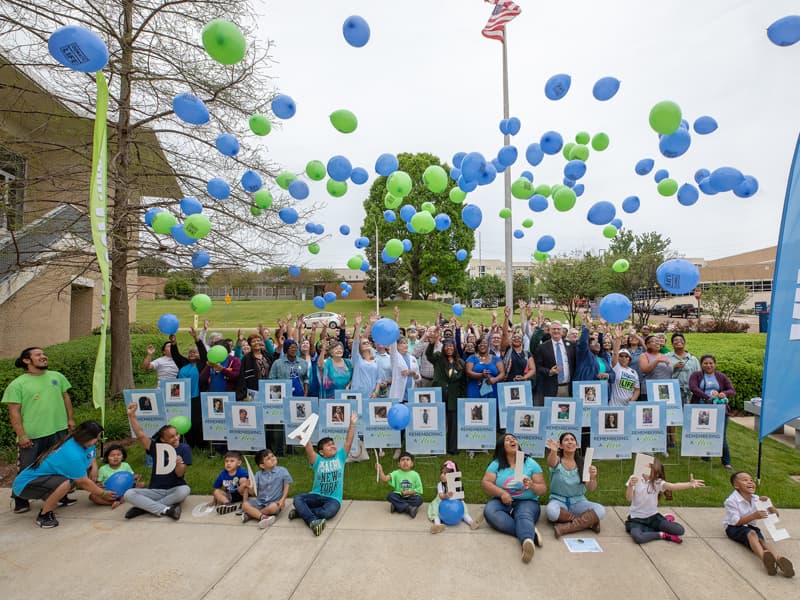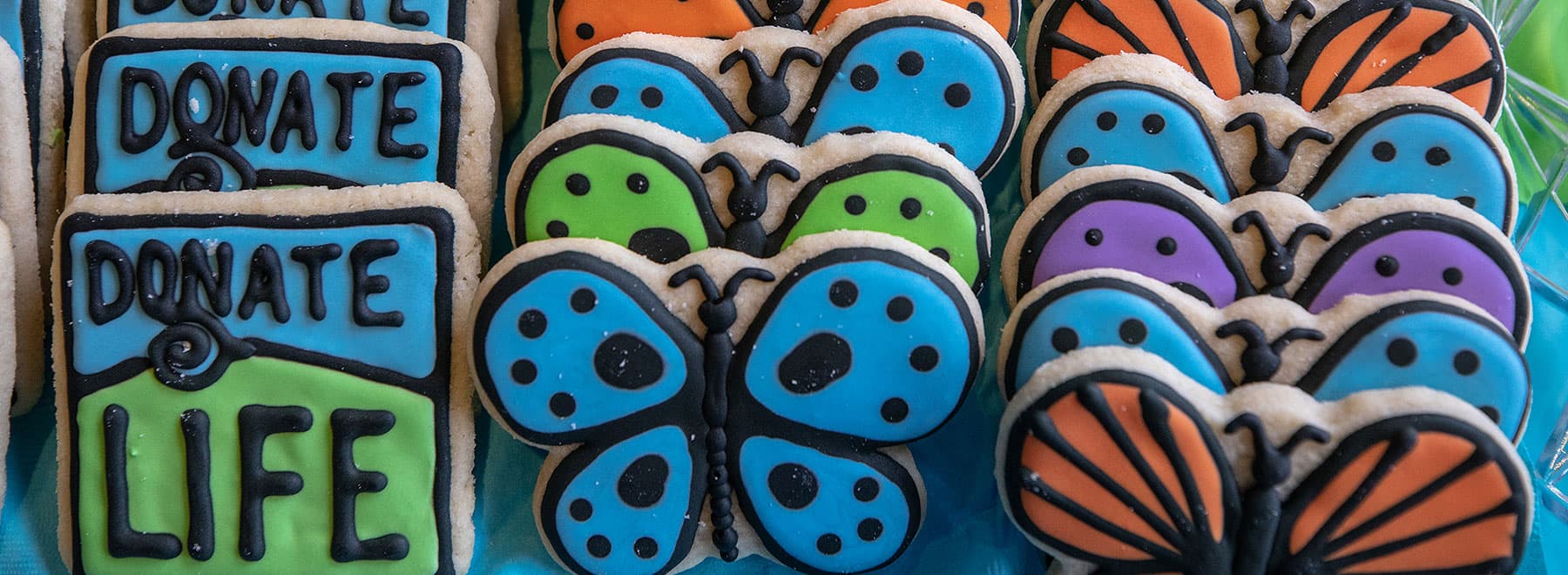In grief, despite tragedy, families generously give gift of life

Her son, Robin Rhodes said, was a good ole’ country boy and fisherman with a big heart.
So when Randy Rhodes died tragically after an October 2014 auto accident, she knew what she needed to do.
“The choice we made when we chose to donate his organs was something he would have done,” said Rhodes, a Laurel resident. “He would have given anyone the shirt off his back. He was a giver.”

Randy’s heart, liver, lungs and kidneys gave new life to recipients in Mississippi and beyond the state’s borders. Those gifts were facilitated by the Mississippi Organ Recovery Agency, the federally designated organ and tissue procurement organization for most of the state that carries out legwork required to pair matching recipients to organs as they become available.
Both organ recipients and the families of donors were honored April 12 at Legacy Day, an annual celebration hosted by MORA and the University of Mississippi Medical Center on the UMMC campus. Dozens of people converged to reminisce, share stories, greet UMMC transplant caregivers and enjoy a balloon release and other activities.

Immediately after her husband, Jackson Police Corporal Allen Harper, died in April 2017 in an on-the-job motorcycle accident, his wife at first hesitated to donate his organs and tissue. “I wanted to be selfish,” said Chequetta Harper.
“But he had always been a giver. How could I be so selfish to say no?” Harper told the crowd. “You need to put that little heart on your driver’s license. A few days ago, I renewed my license, and I said yes to that again. I wanted to make sure I’ll be a donor.”
Family members of donors “have experienced absolute tragedy, and they have the selflessness to make decisions that will save lives,” said Dr. Mark Earl, associate professor of surgery and a transplant surgeon. “They’re trying to make something good out of something that is so devastating.”

Transplant, Earl said, “offers the only, and most durable, treatment for organ failure. Recipients have the courage to face death and come out on the other side.”
When 20-year-old Randy died at Forrest General Hospital in Hattiesburg, Rhodes said, things were in blur for her. “That’s just what happens when you get that call in the middle of the night,” she said. “But, it wasn’t a hard decision to donate his organs. That is what he would have wanted.”
Like many family members of organ donors and organ recipients, Rhodes wrote letters to the people who got her family member’s organs. MORA requires that both parties remain anonymous, so Rhodes didn’t know who she was writing to – but only that MORA would do its best to deliver the letters.
Unless both the donor family and their loved one’s organ recipient say they want to communicate, MORA keeps all information confidential.
“I wrote a generic letter to every recipient except the heart recipient,” Rhodes said. “I never got anything back, and I was at the point where I was about to give up. Then, I found out that there had been some miscommunication.”

A MORA employee called with the news: Randy’s liver recipient wanted to meet the family. “We communicated over the phone,” Rhodes said of Pearl resident Fleeta Hutchison.
The families met in Magee for lunch in spring 2018. “It was nice,” Rhodes said.
“I can’t imagine being in her shoes and being as strong as she is,” Hutchison said of Rhodes.
Rhodes especially wanted to meet a particular recipient of one of Randy’s organs. “Randy had a heart of gold. I wanted to reach out to the person who got his heart.”
She and her family in August 2018 met Kentucky resident and avid outdoorsman Jerry Leach. Rhodes got to listen to her son’s heart beating in Leach’s chest when the two families met up in Chattanooga. It wasn’t the first time she’d heard it.
“When we talked earlier, I asked them if they could record the heartbeat the next time they went to the doctor, and they said absolutely,” Rhodes said. “But his daughter that same day sent me a video and told me not to open it until I got home from work.
“She had recorded his heartbeat from a stethoscope. She said that we aren’t promised tomorrow, so we wanted to make sure you got this,” Rhodes said. She and Leach “have a bond that is unimaginable. It was a match made in heaven.”
You might say they’re a little bit biased, but both Rhodes and Hutchison encourage families, even in the worst moments of their lives, to consider giving the gift of life.
“He wasn’t using those organs,” Rhodes said. “He was already in heaven. For him to be able to help someone continue to live is just amazing.”



